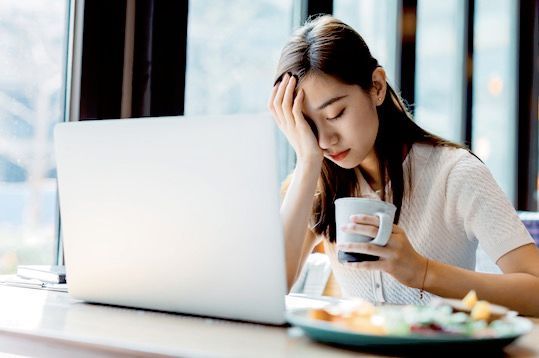
“Sleep is my ‘secret weapon’. I slept 10 hours every night since I was a child, and it is now.” Gu Ailing said in an interview, He once revealed that getting enough sleep is one of his secrets to success, and many netizens expressed their envy after hearing it.
Behind the envy is the fact that public sleep levels are generally declining. The “China Sleep Research Report (2022)” jointly released by the Institute of Sociology of the Chinese Academy of Social Sciences and the Social Science Literature Publishing House shows that the Chinese people do not have enough sleep time, and the average sleep time per day is 7.06 hours, which is nearly 7.06 hours shorter than ten years ago. 1.5 hours.
On the eve of “3·21” World Sleep Day, the release of this report not only provides people with the latest annual sleep data, but also arouses the attention of all walks of life on sleep problems. Students in school, white-collar workers in the workplace, migrant workers, scientific researchers…people of different identities and industries are more or less troubled by sleep problems, the most prominent of which is lack of sleep and poor sleep quality.
According to the survey data of the Ministry of Education, the average sleep time of primary school students and junior high school students in my country is 9.5 hours and 8.4 hours respectively, which is obviously different from the requirement that primary school students should sleep 10 hours a day and junior high school students should sleep 9 hours. gap. Excessive academic pressure is the main reason for the shortened sleep time of students. Students now spend more time completing assignments than in the past, and this is more evident in students who are under pressure to progress to higher education.
The decrease in sleep time among adults is caused by a combination of increased nighttime entertainment and overtime stress. According to a survey conducted by the Academy of Social Sciences, when talking about the situation of “insomnia caused by spending time on mobile phones”, 31.19% of the respondents chose “sometimes”, and 18.73% of the respondents chose “always”. Many studies also suggest that light from mobile phone screens can negatively affect sleep. Contemporary youth have rich and colorful nighttime entertainment activities, and the frequent “swiping night” activities are undoubtedly at the expense of sleep.
It is self-evident that overtime is taking people’s rest time. It should be noted that although some companies have not introduced a rigid overtime system, they are striving to create an environment in which “employees stay in the unit”. For example, some companies provide employees with free evening meals, reimburse taxis for employees who leave the office later, and open facilities such as free gyms at night. These “benefits” have subtly changed the work and rest of employees.
It’s easy to overlook the fact that sleep patterns among family members can influence each other, often with negative consequences. For example, parents who sleep late may make their children take it for granted; and children who stay up late to complete homework will also cause parents to delay bedtime. Family members are more likely to “agreed” on going to bed later than the driving effect of going to bed early.
During the National People’s Congress and the National People’s Congress this year, some deputies suggested that high school students should go to bed at 10 p.m. into the law on the protection of minors. The good wishes of the deputies to the National People’s Congress are worthy of recognition, but the role of the law is to enforce it. Rather than making regulations on sleep time in principle, we should try to eliminate the factors that cause young people to go to bed late. Data shows that after the implementation of the “double reduction” policy, 61.53% of parents of primary and secondary school students said that their children went to bed earlier. Compared with the sleep status survey, the results of the “double reduction” need to be further consolidated, and the formation of good sleep habits by adolescents still needs scientific guidance.
In the context of increasingly rich nightlife, if going to bed late has indeed become a social trend, then from the perspective of ensuring the overall sleep time, it is also an idea to allow more people to “get up late”. In recent years, some places have postponed school start times, which has been welcomed by parents and students. And more employers can also consider implementing a flexible work system to give employees the opportunity to sleep in. In fact, even considering the operational benefits of the enterprise, this attempt can produce positive results. After all, in a big city where the commute time is often more than half an hour, if employees are required to arrive at work early, it is easy to doze off and lose energy. In contrast, flexible attendance can improve employees’ autonomy in managing their time and help improve work efficiency.
Different age groups require different sleep time, and different individuals have different feelings about “sufficient sleep”. In the final analysis, sleep is one’s own. To improve sleep conditions, everyone also needs to do self-regulation: in the face of the temptation of entertainment life, strengthen self-control; in the face of unreasonable overtime requirements, have the courage to defend rights; supervise and encourage each other in family life, so that the whole family has enough of sleep.
Source: China Youth Daily Client